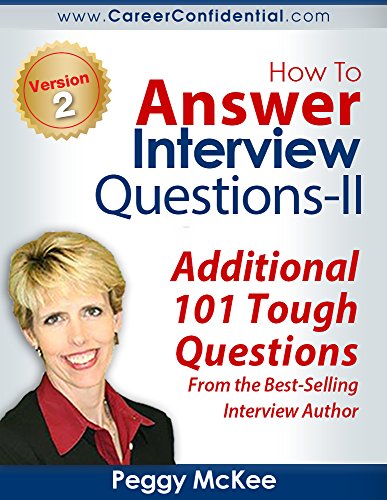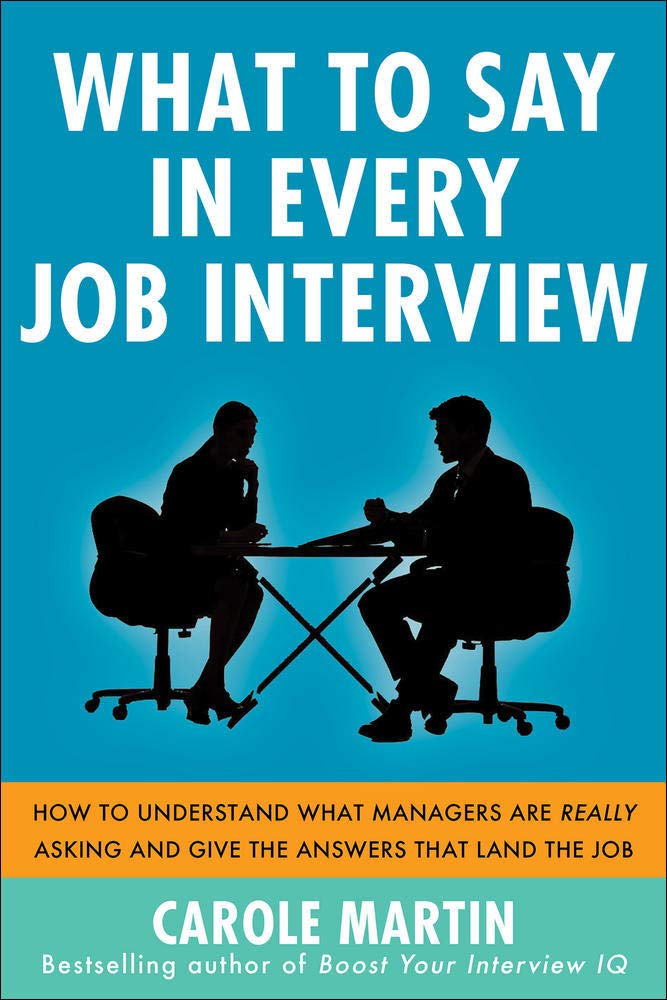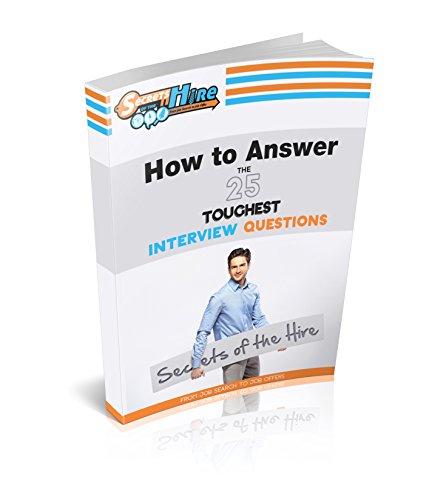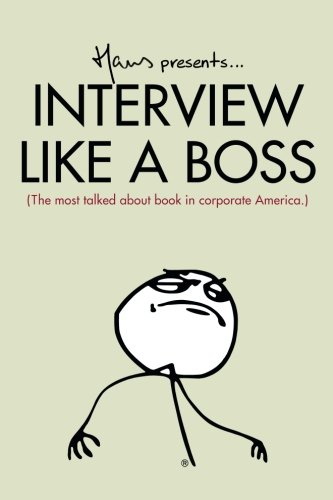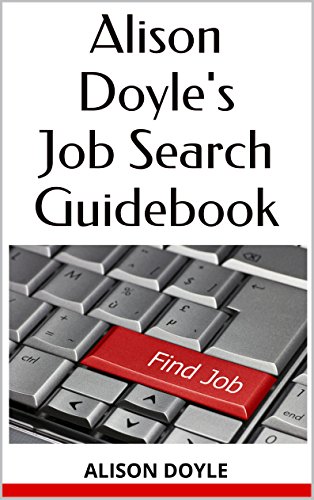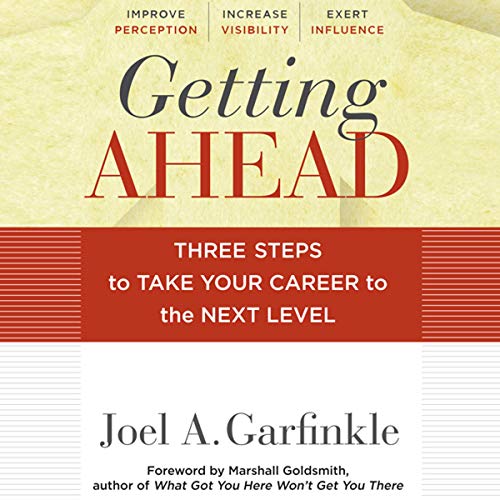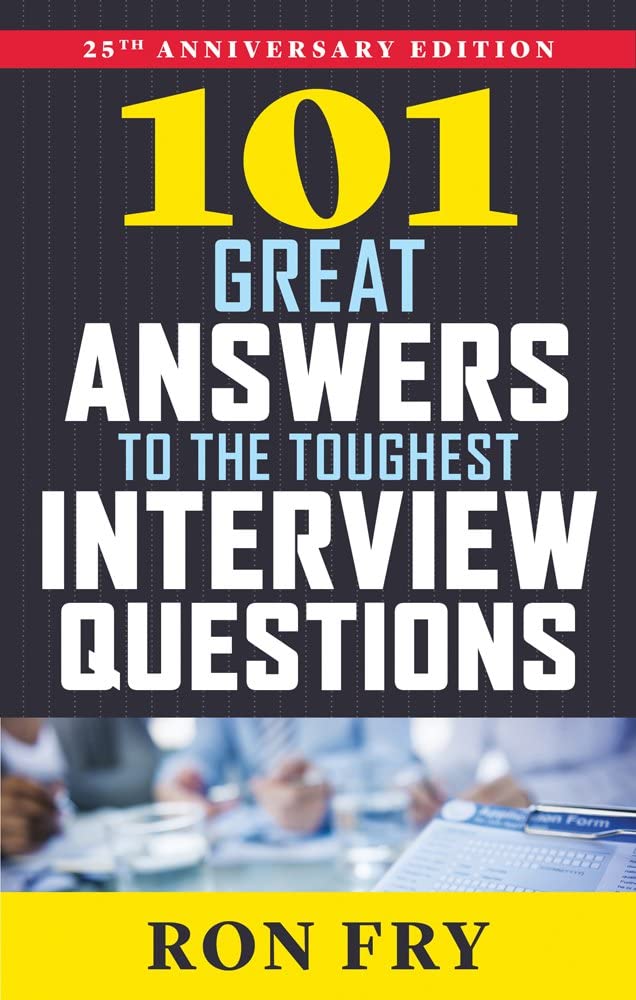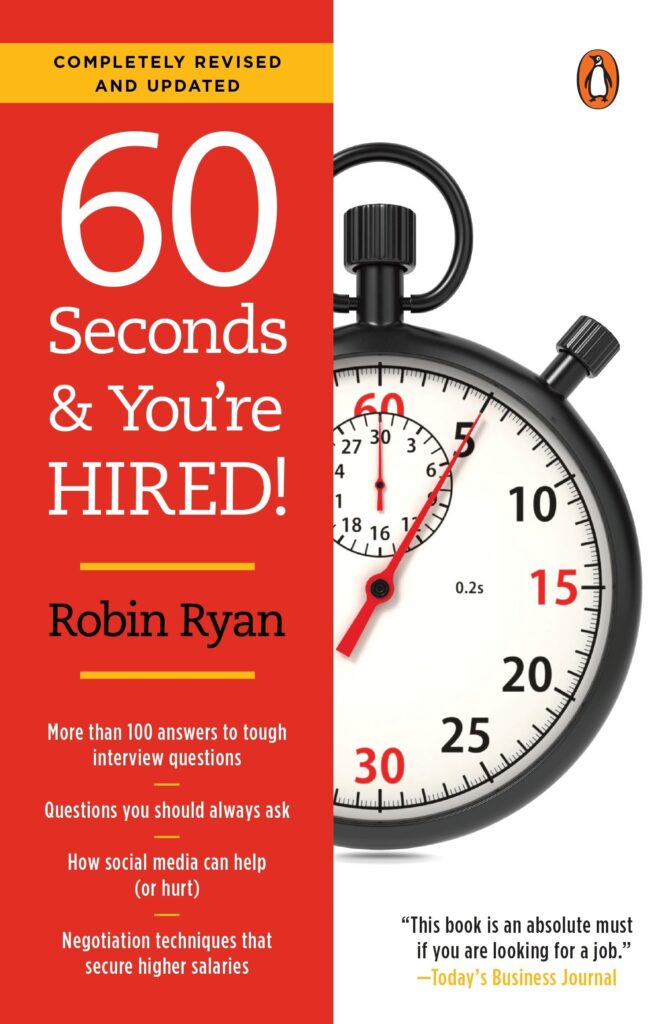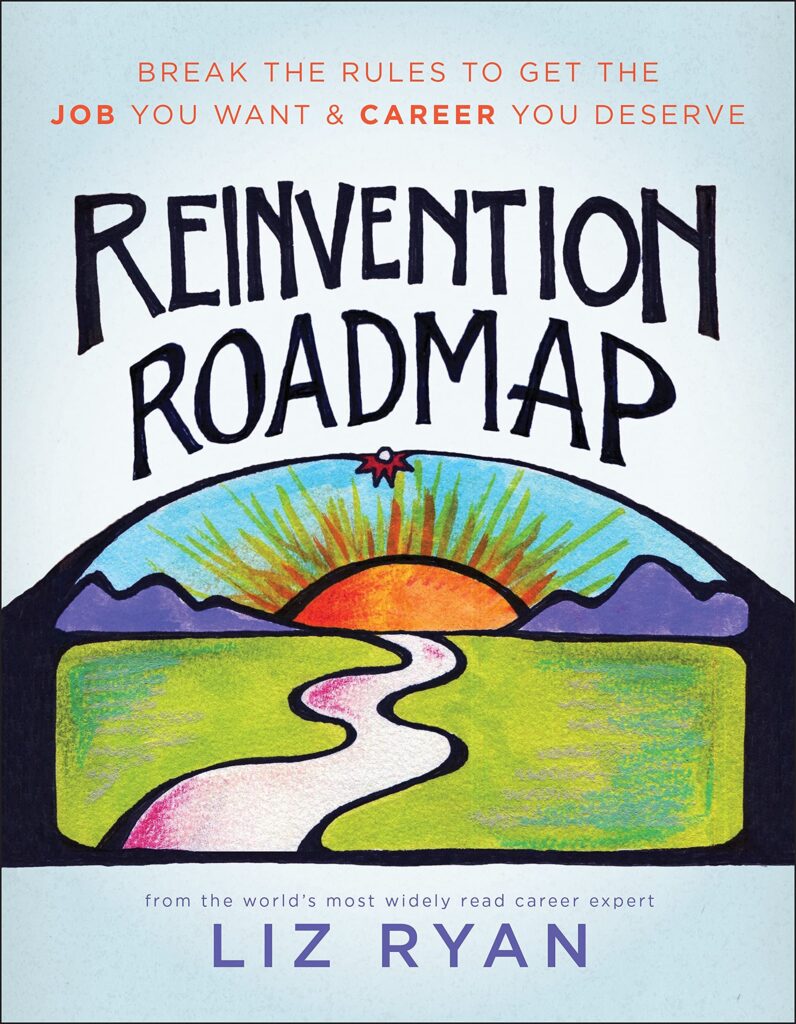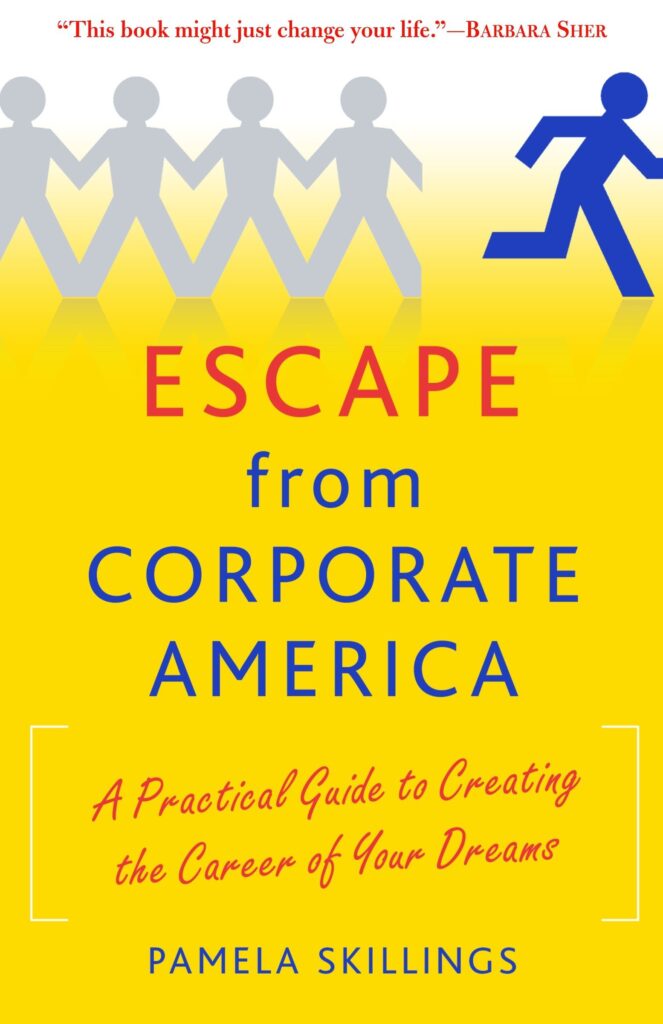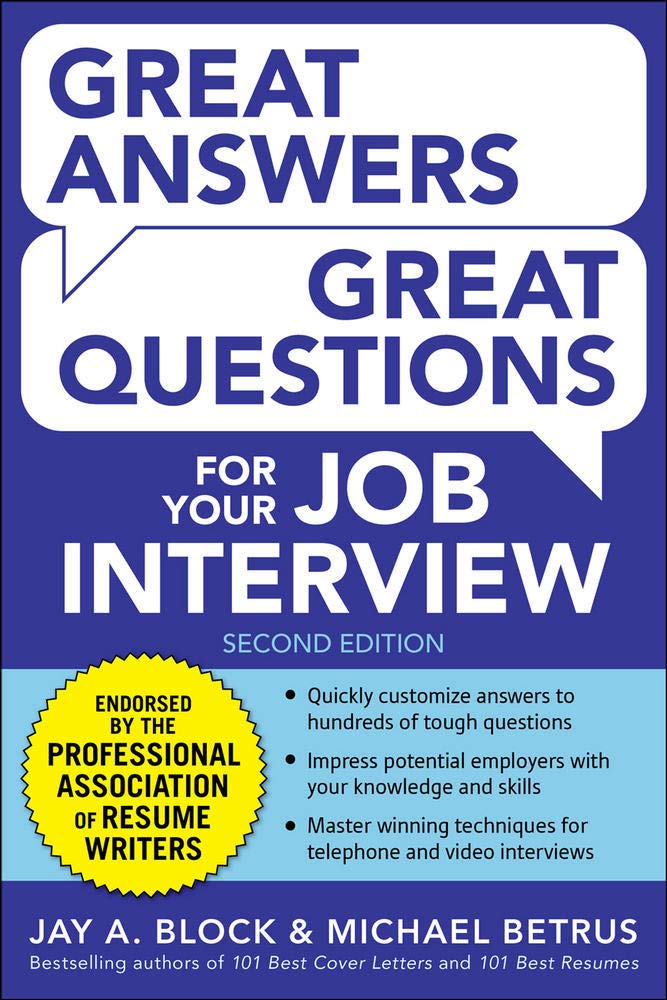There is no great mystery to performing effectively at a job interview. It’s all about preparation. This is easier to say in theory than to carry out in practice, but job interviews are, for the most part, a formula. They’re composed of and measured by a core of the most common interview questions and answers that ‘tick the boxes’.
Any candidate is sure to make a strong impression if they make a reasonably committed study of the most common interview questions and answers; if they consider what the interview panel is really looking for; if they research the etiquette and customs of appearance and behaviour during and after the interview; by studying the huge bank of literature written on the subject by qualified career coaches.
Understanding what is at work behind the most common interview questions and answers is about more than knowing your own resume by rote. It is also about more than knowing the profile of the hiring company. Interview effectiveness is a synthesis of both, requiring you to diligently research your resume and the company profile with extreme.
It is critical to understand that an interview is a forum for pitching the skills, achievements, qualifications and character attributes listed on your resume as unique selling points; USPs that align with what the hiring company is looking for. Knowledge of the most common interview questions and answers is vital
Make no mistake: if you go in to an interview ill-prepared, it’s doubtful that you will make a good impression. It’s an inexcusable waste of opportunity.
But if you properly appreciate that the body of research on the most common interview questions and answers is a gift of an opportunity to present your best self, there is no reason to assume you will not make the final shortlist at the very least.
The Internet provides an amazing springboard into the world of the leading minds on careers, job-seeking and the interview process, all of whom have written at length about the most common interview questions and answers.
Q&A: Most Common Interview Questions and Answers that Tick The Boxes
Here, then, are 10 of the most common interview questions and answers, complete with insights into what the interview panel asking them is thinking, as well as specific tips from top career coaches on the preparation necessary to tailor each answer to you.
1. What would your colleagues say about you?
Interview Panel is thinking: What does this candidate think about how others view him or her? Are they self-aware, as ready to accept and improve on their weaknesses, as they are to trumpet their skills? What were relations like between this candidate and their former colleagues?
Peggy McKee CEO of Career Confidential, and author of How to Answer Interview Questions: 101 Tough Interview Questions, writes that the interviewers are attempting to find out potentially how you will get along with co-workers; to establish whether your works chime with the impressions they have formed of you during the interview; and also to get a more rounded picture of your personality in order to determine if you will be a good fit for the company culture.
McKee writes that she would respond: “My friends would tell you the same thing my references would tell you: that I’m high-energy, I’m competitive, and I’m driven to succeed. I have those same qualities in my personal life as I do in my professional life.”
She adds: “Just choose 3 or 4 positive traits you possess that would be a plus for someone in that job. That’s part of a good job interview strategy. Always be able to tie your answer back to something that would recommend you for the job.
Key Study Text: How to Answer Interview Questions: 101 Tough Interview Questions, by Peggy McKee
Image Source: Amazon
Check Price >
Why is this text important?: Peggy McKee’s expertise is in bolstering the confidence of interview applicants, overcoming that dreaded tongue-tied state that makes it incredibly difficult to sell themselves properly and accurately to the interview panel.
The reason why Peggy McKee is so strong in this area stems from her own background. She actually started out in the medical sales sector, but switched to recruitment and then to career coaching. She established Career Confidential, one of the most influential online resources for job-seekers, with more than 23,000 clients in 90 countries.
McKee’s entire strategy is rooted in her conceptualisation of the employee/employer relationship. In the McKee model, the employer is the customer, and the candidate is the product. In her books, of which How to Answer Interview Questions: 101 Tough Interview Questions is a fantastic starter, McKee coaches you how to market yourself through the answers that you provide to the toughest interview questions.
2. What are your greatest strengths/weaknesses?
What the Interview Panel is thinking: How self-aware is this candidate? Are they genuinely and positively self-critical? What analytical and problem-solving skills might they bring to this company?
Career coach Carole Martin, author of What to Say in Every Job Interview: How to Understand What Managers are Really Asking and Give the Answers that Land the Job (Business Books), has practical advice on preparing for this question.
Prior to the interview, divide a piece of paper into three columns, and group your skills under these headings: knowledge-based skills (acquired through experience in education or work, e.g. degrees and certificates, languages, IT skills); transferable skills (what you bring with you to any job, e.g., communication skills, people skills, planning, analytical problem-solving, etc.); and personal traits (qualities that are unique to you, e.g., reliability, flexibility, friendliness, hard-working, good humour, punctuality, collaboration, enthusiasm, trustworthiness, creativity, discipline, patience, respectfulness, determination, dedication, honesty and versatility).
Choose three to five of the strengths from each column that match the employer’s specific requirements as listed in the job advertisement, and back them up with specific examples from your own history to demonstrate why you believe it to be a strength.
On weaknesses: no-one wants to go there, but it is vital to demonstrate honesty. Examples of weaknesses cited by Carole Martin include: being too critical of yourself; attempting to please everyone; being unfamiliar with the latest software or social media platform.
Again, preparation is vital. Research the most common interview questions and answers, and then apply it to your own experience. Write and memorise something short, concise and positive, which you will be able to deliver with confidence.
Here is a good example that incorporates both strengths and weaknesses:
“My strength is my ability to handle change. As customer service manager at my last job, I was able to turn around a negative working environment and develop a very supportive team. As far as weaknesses, I feel that my management skills could be stronger, and I am constantly working to improve them.”
Key Study Text: What to Say in Every Job Interview: How to Understand What Managers are Really Asking and Give the Answers that Land the Job, by Carole Martin
Image Source: Amazon
Check Price >
Why is this text important?: Carole Martin is one of the most respected names in careers coaching worldwide, and her professional profile name is The Interview Coach. This is a person who has an awful lot of useful information to impart about job interviews. She has amassed more than 20 years of human resource and staffing expertise in a broad range of industries and sectors, including biotechnology, software engineering, tech, publishing, consulting, sales, aerospace, non-profit and outplacement. She has worked with everything from Fortune 500s to start-ups, and all points in between, and is the author of no fewer than 7 books on the subject of interviewing. She even has an acclaimed FBI agency interview training program and broadened this out to cater for people interested in a career in public service.
Having spent many years on the opposite side of the desk to numerous job candidates, Martin encourages applicants to think more holistically and positively about an interview than a process of right and wrong answers. While researching the most common interview questions and answers is useful, Martin advises the applicant to rethink the process as one of “better and worse” answers
What To Say In Every Job Interview is one of her most recent works, having been published in 2013, and in it, Martin contends that every interviewer’s three primary concerns are as follows:
1. Can this candidate perform the job?
2. Is this candidate a good fit with our company culture?
3. Can our company afford this candidate?
Every interview question will have a critical factor emanating from one or more of these concerns, and Martin’s book trains you not only in how to spot these factors, but also to think about them as opportunities for presenting yourself in the best possible light. Therefore, she demonstrates beyond the shadow of a doubt, the importance of preparation and researching the more prepared you are, the less stressed out you will be in the pressure situation of the interview room.
3. Where do you see yourself in five years?
What the Interview Panel is thinking: “Is this candidate going to be with us for the long-term? Have they properly thought through what is meant by working for our company? If we hire them and they disappear after six months, it will be a waste of resources. How ambitious are they? Are they too ambitious for what we can offer?”
Dayvon Goddard, author of How to Answer the 25 Toughest Job Interview Questions, which includes guidance on all of the most common interview questions and answers, advises that response to this query should be structured by covering a number of topics, such as:
- Your Interest in the Job
- Your Core Strengths
- Your Professional Goals
- Where you would like to be each year
Goddard’s sample answer to this question is as follows:
I definitely see myself employed within this company for the next five years and beyond. I feel as though your company and I share some of the same values, such as _______ and _________. I would really like to take those to a superior level with the help of this company. This is definitely the position I’ve been preparing for and I am excited about the opportunity to work with you for the next five years.
If you have researched the potential growth opportunities available with your position, Goddard also suggests that you should let the interviewer know that you see yourself assuming the responsibilities.
“For example,” he writes, “if you are applying for an accounting position and in five years you know that the position will likely lead you to a Senior Accountant position, tell the interviewer that you see yourself in the role of Senior Accountant (be sure to state the responsibilities of this position and how you plan on executing them as efficiently as possible).”
Key Study Text: How to Answer the 25 Toughest Job Interview Questions, by Dayvon Goddard
Image Source: Amazon
Check Price >
Why is this text important?: Dayvon Goddard is the founder and CEO of Secrets of the Hire, which aims to shorten the journey from job search to job offer for college students and recent graduates. As such, it is regarded as one of the leading careers websites for students and graduates throughout North America. The agency is a multi-faceted one, focusing not just on job interview consulting, but also on scholarships, resumé consulting, personal branding and LinkedIn workshops.
Goddard has an energetic, good-humoured and common-sense approach to job interviews. While he insists that preparation and research of the most common interview questions and answers is very important, he insists that candidates shouldn’t over-prepare. Responses should not be scripted, but mentally ‘bullet-pointed’, he argues, while also insisting that there is no way that any candidate will get to say everything that they intend to say. You’ll find a ton of useful advice and hints on his LInkedIn and YouTube channels.
But the book is something else again; it’s a veritable Bible for job-seekers. It’s a basic text, and just 85 pages in length, but it is crammed with the kind of information that you need to give the very best responses and make the most of your abilities in response to the questions you are asked at interview. In other words, it’s a core text on the most common interview questions and answers.
As a bonus, he also includes a section on questions that you can ask the interviewer when the main interview is over. The quality of the questions you ask, as we have covered previously, can be as decisive to your fortunes as the standard of your answers to the questions asked by the panel.
Goddard does all this very well, in a very straight-forward, no frills way that’s easy to remember and sticks to the point, never losing sight of the objective of helping you to match your abilities to the requirements of the company to which you have submitted your application.
4. Tell me about yourself
What the Interview Panel is thinking: What is the demeanour and attitude of this candidate, and how articulate are they? Does the candidate understand they are being asked to represent their best self, and what they regard as special about themselves?
This is the question that you are going to be asked in every interview. In the fun and informative Interview Like A Boss, Hans Van Nas emphasises that hirers are looking for a quick and informative response to this question.
“Instead of forestalling it, stick to responding with a crisp, clean FIVE point introduction—1 your name; 2 your status; 3 what you did at school or work; 4 the type of person you are; 5 why you decided to apply.”
Van Nas’s book contains 20+ second intro samples, tailored to specific job backgrounds and personality types.Whether you use the samples as is, or customise them, the interviewer will take notice, so long as you cover all five points.
Key Study Text: Interview Like A Boss: The Most Talked About Book in Corporate America, by Hans Van Nas
Image Source: Amazon
Check Price >
Why is this text important?: This book by Hans Van Nas is one of the more intriguing choices for interview preparation. For one thing, it’s likely that Hans Van Nas is a pseudonym, for there is pretty much nothing about the writer Hans Van Nas online, nor anything more about ‘Interview Like A Boss’ than is listed on the pages of the commercial websites where the book is available for purchase.
However, there is an huge amount of hype about the book that is very difficult to ignore, with favourable comments about it not just from some of the top employers in the US, but also schools across the nation. ‘Interview Like A Boss’ is also one of the most popular choices on Amazon for the job resumes sub-category,
On online forums there is quite a bit of criticism about the author’s writing style, but a lot of praise generally for the book’s simple, yet comprehensive and detailed, presentation of a wide range of interview-related topics, from interview preparation to ‘what not to do’ guidance when you arrive at your interview destination.
It will definitely provide a satisfying, comforting boost to your confidence, even when handling potentially tricky questions about, for example, the salary level in your last job, and your reasons for wanting to leave to your current station. Best of all, there is a plethora of breathtaking examples of how not to conduct yourself at interview, drawn from real life examples, that will definitely place you in good stead as you prepare to present your best self to the interview panel. In short, if you are setting out to research the most common interview questions and answers, this is as good a starter text as you could hope for.
5. Why did you leave your last job?
What the Interview Panel is thinking: “How did this candidate get along with their previous employer? Did they leave on good terms or bad? Does this candidate have a definite view about employer/employee relationships, and will that work for us? Does this candidate bad-mouth their previous employer? What does that tell us about this person’s loyalty and respect for business? Might this candidate leave us for the same reasons?”
Alison Doyle, author of Alison Doyle’s Job Search Guidebook, is a job search and career expert with many years of experience in human resources, career development, and job searching. She says the answer to this question is a “window into your on-the-job character and values”.
She advises careful preparation of an answer, which should be practiced over and over, until you sound positive and clear about your circumstances now and your goals for the future. And her advice applies not just to this question, but to your research into all the most common interview questions and answers. Do your homework!
“There are all sorts of reasons to leave a job,” she writes. “Maybe you want a higher salary, thought the company was in chaos, despised a new manager, or were laid off. Not all of these responses should be shared during a job interview, however. Be honest, but also strategic in your response – avoid any answer that reflects poorly on you.”
Here are some of Alison Doyle’s tips for how to develop a strong response:
“Avoid negativity: Do not speak poorly of managers, colleagues, or the company. You can, however, speak broadly about company goals or mention that you disagree with the direction the business is pursuing. Just don’t get personal in your response. Being negative won’t reflect well upon you. Plus, industries can often be small: You could easily speak negatively of a co-worker only to have that person be your interviewer’s former colleague.”
“Be honest: You don’t have to tell the whole truth. But you should tell something that reflects the real reason you are leaving. Let’s say you’re frustrated by a lack of opportunities. Lead off by describing some of the things you have been able to accomplish, and then pivot to saying how you no longer have opportunities to learn and develop your skills. Bonus points if you can tie your answer back to why the job you’re applying for is a better fit, and will offer you new, exciting opportunities.”
“Practice: Because you want to be honest – but not overly frank – in responding to this question, it’s a good one to practice ahead of time. That will help you feel comfortable answering. That’s particularly true if you were laid off or fired – this question can be particularly nerve-wracking to answer in that case. But just give a short, clear, and unemotional response.”
Here are some single-line, concise answers to this question based on Alison Doyle’s research into on the most common interview questions and answers:
- I quit my job because my supervisor retired. I felt that after many years of working in the office that it was time for a change and this seem like the ideal time to move on.
- I was able to take advantage of an early retirement offer due to company downsizing and am ready for a new challenge.
- I resigned to focus on finding a job that is closer to home and will use my skills and experience in a different capacity.
- I don’t have room to grow with my current employer and I’m ready to move on to a new challenge.
- I’m looking for a new challenge and to grow my career and I couldn’t job hunt part time while working.
- I have been volunteering in this capacity and love it. I’m seeking to turn my passion into the next step of my career.
- I was laid-off from my last position when my job was eliminated due to downsizing.
- After several years in my last position, I’m looking for a company where I can contribute and grow in a team-oriented environment.
- I am interested in a new challenge and an opportunity to use my skills and experience in a different capacity than I have in the past.
- I recently achieved certification and I want to utilize my educational background and technical skills in my next position.
- I am interested in a job with more responsibility, and I am very ready for a new challenge.
- I left my last position in order to spend more time with an ill family member. Circumstances have changed and I’m more than ready for full-time employment again.
- I was commuting and spending an hour each day on travel. I would prefer to be closer to home.
- To be honest, I wasn’t considering a change, but, a former colleague recommended this job to me and was intrigued by the position and the company. It sounds like an exciting opportunity and an ideal match for my qualifications.
- This position seemed like an excellent match for my skills and experience and I am not able to fully utilize them in my present job.
- The company was downsizing and I thought it made sense to seek another position before my job was eliminated
Key Study Text: Alison Doyle’s Job Search Guidebook, by Alison Doyle
Image Source: Amazon
Check Price >
Why is this text important?: Alison Doyle is one of the foremost experts in job-seeking, human resources and career development, with a current focus that encompasses online job searching, social media, professional networking and employment trends and technologies.
And Alison Doyle’s Job Search Guidebook is as distinctively good as you would expect from any textbook that places the author’s name so entirely in the title. It is such a refreshingly practical guide to the most common interview questions and answers that it could well become your permanent job-seeking companion.
She takes you through every step in the job-seeking process, showing you how to use social media and other resources in a strategic way to maximise your chances of standing out from the crowd. And as noted, her work on the most common interview questions and answers is particularly good.
The author claims that her methods will help you to choose and change careers; use the best Internet sites, apps and tools for job-hunting; use social networking; apply tried and tested resumé and cover letter writing techniques that will make your application a standout one; and to build and informed understanding of job seeking, networking and interview techniques, especially in the current challenging jobs market.
Other books by Alison Doyle including Internet Your Way To A New Job: How to Really Find a Job Online, and the About.com Guide to Job Searching, but the Job Search Guidebookoffers the best first step into strategic job hunting and understanding fundamental factors such as the most common interview questions and answers.
6. Do you have any questions for us?
What the Interview Panel is thinking: “We’re giving this candidate a final opportunity to show whether they have prepared and have been listening to us at this interview. It’s their last chance to show how passionate they are about the job and the company. How strong a ‘closer’ is this person?”
The most important advice on this question is that you should never be in a position where you do not have a question to ask your interviewers when invited. Research a couple of questions to ask at job interview. Having a question, or two, is a positive sign, signalling that you have commitment, a healthy curiosity and care about the job you have applied for.
Joel Garfinkel author of Getting Ahead: Three Steps to Take Your Career to the Next Level, says that the two most important questions to ask at every interview are:
i. In your opinion, what is required for success in this position?
and
ii. Do you have any concerns that would keep you from recommending me for this job?
Garfinkel actually advises that the first should be asked before you answer any questions, as this “ensures you understand and can address the hidden expectations of each interviewer” (who will all have separate expectations for each job), but if that is not possible, it should definitely be asked at the end.
The second Garfinkel admits is a tough one to ask, but it should always be asked toward the end of the interview, and it will give you an opportunity to address any concerns the interviewer might raise. This is a particularly shining jewel among the most common interview questions and answers, and you should have the courage to ask it when you have the opportunity.
Garfinkel provides an additional five questions that candidates can raise at job interviews.
• What are the expectations of the person to whom I would report?
• What kind of a person are you looking for to fill this position?
• What are the priorities of the position?
• What are the main problem areas that need attention in this position?
• Where do we go from here in the interview process?
Key Study Text: Getting Ahead: Three Steps to Take Your Career to the Next Level, by Joel Garfinkel
Image Source: Amazon
Check Price >
Why is this text important?: This text was first published in the Fall of 2011, and it remains one of the most acclaimed careers advice books ever published. Joel A Garfinkel is one of the top 50 executive coaches in the United States and it’s in this book that he sets out his signature three-step model for advancing your career development. He calls it PVI—Perception, Visibility & Influence.
The PVI model breaks down as follows: 1. Perception: promoting yourself as an asset to an organization; 2. Visibility: gaining the recognition of others and their appreciation for your efforts; and, 3. Influence: becoming an influential person who will make key decisions for the organisation.
It sounds incredibly ambitious, and is not for shrinking violets, but it absolutely works, and Garfinkle has spent the past 20-something years both devising his theories and putting them to the test in the heat of his professional relationships with thousands of executives, senior managers, directors and employees at some of the most prominent companies on Earth.
it’s all about getting noticed, and the strength of the book is that it is not a succession of abstract concepts. It’s full of practical advice, and not just about the most common interview questions and answers. He also advises on the best steps to take to increase your exposure and visibility, as well as demonstrating how to improve your perceived value to any organisation and achieve the career-advancement goals you have set.
Garfinkle’s insights have been sought out by some of the best known companies in the world, including Google, Amazon, Hewlett-Packard, Starbucks, Gap, Cisco Systems, Deloitte and Microsoft to name but a few, and he has authored no fewer than 7 books and penned in excess of 300 articles on careers and leadership for a diverse cross section of national media platforms.
7. The ‘hypothetical problem/crisis’ question
What the Interview Panel is thinking: ‘How does this person think on their feet? Do they have a process? They might not be able to answer this, but how do they deal with the stress of this, and do they have any rational and logical problem-solving suggestions? Do they genuinely engage with the problem, or just give up immediately?’
The STAR approach (Situation or Task, Action you took, Results you achieved) approach is useful in a high-pressure situation. But as Ron Fry suggests in his 101 Great Answers to the Toughest Interview Questions, 25th Anniversary Edition, it’s best to prepare for this by compiling a dossier of information about yourself, with your key strengths, information about your education and employment history, how others would describe you, and your strongest skills,in addition to detailing specific instances where your skills helped you to solve a problem for your business or your employer.
And even if the problem is beyond your reach, keep calm and attempt to convey that you have analysed it critically, and would know what steps would be required to solve it satisfactorily.
Weigh up the options that you considered, and show how you reached your decision. It’s a hypothetical situation, but — and this is very important — never joke or make light of the situation.
Key Study Text: 101 Great Answers to the Toughest Interview Questions, 25th Anniversary Edition, by Ron Fry
Image Source: Amazon
Check Price >
Why is this text important?: Ron Fry is a great ally to the person who wants to be best prepared for the job interview, because he recommends going straight into battle. Mr Fry doesn’t simply focus on the most common interview questions and answers. It’s the toughest interviews that he is interested in. This is because of his view that it doesn’t matter how good you look, or how much you have researched the most common interview questions and answers, or how deftly you match you qualifications to the job descriptions. Rather, by preparing quality responses to the toughest questions that interviewers can throw at you—especially if you fear questions such as the hypothetical problem or crisis question—Fry insists that you will truly stand out from the competition.
Fry is a respected figure nationally for the active role that he has played in devising effective personal education programs as part of his ongoing campaign to improve public education. His best-selling How To Study series has sold more than 3-million copies to date, and he has written more than 30 other books about education and careers.
In 101 Great Answers…, Fry encourages you to become an interview artists (so there are echoes of Liz Ryan’s linkages between job seeking and professional opera singing). He writes: “Most interviewers are not trying to torture you for sport. Their motive is to quickly learn enough about you to make an informed decision—should you stay or should you go? By the same token, if you know what they’re looking for, you can craft your answers accordingly (and reduce your own fear and anxiety at the same time). I hope you’ll take it a step further and use these questions as the basis for some thoughtful self-exploration. You’ll need to be prepared to think for yourself—on your feet, not by the seat of your pants. While it is certainly competitive, The interview process is not a competition. Rather than thinking of yourself as an athlete trying to ‘out-answer’ the other candidates, consider an interview you chance to be an artists—to paint a portrait of the person you are, the candidate any company should like, respect… and want to hire.”
8. The ‘surprise’ question
Interview Panel is thinking: Let’s take this candidate outside the box here with something completely unexpected, and get a glimpse of their personality.
Robin Ryan, best-selling author of 60 Seconds and You’re Hired!, relates an anecdote about what happened when ‘John’, an accomplished project manager, interviewed for a position with a major Fortune 100 company.
“John felt he’d do ok since his resume demonstrated his terrific success on the job. That confidence left him the second after he heard his first interview question, which was: “Tell us about a recent time you worked with a group of culturally diverse people and what you said and did to persuade these people to see your point of view.” He said he did not recover from that one since the words culturally diverse group really stumped him.
“The most difficult questions you’ll encounter in a job interview are the commonly asked behavioral or situational interview questions. The interviewer uses a probing style to ask questions seeking very specific examples. They often start out with, “Tell me about a time …”, or “Describe …”, or “Give me an example …” The interviewer is looking for details of your past abilities and specific work performance. He or she rates each response to determine how well you reacted to these situations in the past, and to predict your future performance with their company. These situational questions are thought-provoking and you should consider your answers carefully. The interviewer likely will take notes on each answer. Your answer must contain specifics: specific details, specific illustrations, about a specific work situation.”
Robin Ryan advises advance preparation, by poring through your resume for the standout achievements and moments in your career history, how these showed the best of yourself in terms of your ability to work with others, your leadership, your technical expertise, or your communication skills.
Key Study Text: 60 Seconds and You’re Hired!, by Robin Ryan
Why is this text important?: Robin Ryan is a career counsellor, interview coach, resumé- and LinkedIn Profile-writer with more than 30 years of experience working at the very leading edges of job-searching throughout those decades. She’s an enormously respected coach (“America’s top job search expert”, according to CBS Radio, and “America’s top career expert” offers The LA Times) and has notched up more than 2,000 TV and radio appearances on such high profile shows as Oprah and Dr Phil, and imparted her advice in the column inches of some of the leading print media titles in the US, including ‘Business Week’, the ‘New York Times’, ‘USA Today’ and the ‘Wall Street Journal’, to name but a few.
She is also a speaker of esteemed renown, and a number 1 ‘Wall Street Journal’ best-selling author, having written eight books, of which our featured text here, 60 Seconds and You’re Hired!, is one.
This runs to 224 pages, but given the ground that she covers here, it’s incredibly compact and easily digestible. Not only does she provide answers to 125 of the toughest and trickiest interview questions, she also introduces you to entertaining but also incredibly potent models such as ‘The 60 Second Sell’ and ‘The 5-Point Agenda’.
Robin Ryan also shows you how to handle potentially awkward questions about your current salary and other aspects of your current or past employment, and provides you with questions that you should always ask (as well as warn you off the ones you should avoid), and outlines the major interview pitfalls that you should avoid.
As if that were not enough, she will even go beyond the interview process and share the proven negotiation techniques that will help you to secure higher salaries and more.
9. Why do you want to work for us?
What the Interview Panel is thinking: “Does this candidate really want to work for us? Do they know anything about us and do they share our outlook and values? Or are they just looking for a job?”
Liz Ryan, CEO and founder of Human Workplace—a think-tank and publishing firm whose mission is to reinvent work for people—has written extensively and widely on the subject of careers, the top 10 interview questions and, in particular, interview preparation. In her Reinvention Roadmap: Break the Rules to Get the Job You Want and Career You Deserve, Ryan freely admits that the truthful answer for the majority of job-seekers is: “I saw your job ad, I’m qualified for the job, and so I wanted to learn more. I don’t know yet whether or not I want to work here. That’s why I came to the interview — to find out.”
However, even if that is your feeling, it’s better to adopt a softer tone. You have been given the interview so you must be in with a chance. They already know that you want a job, so what they’re actually doing here is giving you an opportunity to hear what you know about the company.
Ryan writes: The best way to answer the question is to mention an aspect of the company’s mission, the role you’re applying for or an initiative you’d be involved in. When you do that, you let the interviewer know that you’ve done your research and you also tie your own goals to the company’s goals.
Here are a few examples from Liz Ryan:
INTERVIEWER: Why do you want to work here?
YOU: From what I understand, your company is looking at expanding into children’s publishing, and that is my first love. I interned in a children’s publishing house right after college and I’m writing a children’s book of my own, too.
INTERVIEWER: Why do you want to work here?
YOU: I am attracted to your culture, and your company’s focus on team-based product development. I have often chafed at the constraints on traditional product development methodology and I’m avid to learn more.
INTERVIEWER: Why do you want to work here?
YOU: My sister worked here when she lived in this area and she still says it was her best job yet. She said that she learned so much and she has told me more than once that if I could work here I would really enjoy it. Now that you’re growing your Customer Support team I wanted to jump at that opportunity.
Key Study Text: Reinvention Roadmap: Break the Rules to Get the Job You Want and Career You Deserve, by Liz Ryan
Image Source: Amazon
Check Price >
Why is this text important?: :you may well wonder why we have chosen Liz Ryan’s book to answer this core interview question. Well, firstly, because it’s an important question, and a very simple one, that can really trip up candidates who have not prepared.
Read Ryan’s work and you will be able to sell yourself as a person who understands perfectly what the job-seeking process is, and who is able to deftly sell their skills as the perfect fit for the company in question. If you feel boxed in by your current professional profile and feel that you need to break out and redefine yourself, then you will probably find Liz Ryan an inspirational figure.
That’s because for many years, Ryan was an HR person who had a side career as a professional opera singer. After a number roof years, she began to see clear connections and links between singing opera and job interviewing, especially in putting yourself through successive auditions in the hope of landing a role. For Ryan, the key link was in the advice imparted by her singing teaching Winifred, who told her: “You have no idea what they want. They may have a conception of the role already. If they want Corn Flakes and you’re Raisin Bran, you’re not going to get the role, but that’s okay. Your job is not to try to figure out what they want. Go sing the best version of you that there is at this minute, and forget about everyone else.”
Ryan’s Reinvention Roadmap… is the aptly titled book that helps people to rethink and reinvent work in the very fluid and ever evolving world of work in the early 21st century. It’s as informative and inspiring a text book as you would expect from someone who is regarded as an expert on the inside track of recruitment systems worldwide. It’s fun, irreverent and extremely practical, and indispensable if you have a more fluid vision of work than the traditional model. And as a round-up of the most common interview questions and answers, it’s difficult to top this one.
10. Why Should We Hire You?
What the Interview Panel is thinking: Does this candidate truly understand our values and business goals, and specifically how they can contribute to it?
Pamela Skillings is the author of Escape from Corporate America: A Practical Guide to Creating the Career of Your Dreams. She has helped her clients land dream jobs at companies including Google, Microsoft, Goldman Sachs and JP Morgan Chase. Skillings says that this question will come in a number of guises, namely:
- Why should we hire you?
- Why are you the best candidate for the job?
- Why are you the right fit for the position?
- What would you bring to the position?
Candidates need to prepare a standard answer for this question that is easily customised to each job opportunity, Skillings writes, advising a three-step process.
a: Brainstorm – review the job description and your resume, ask yourself these questions, and jot down anything that comes to mind.
- What are the most important qualifications for this position from the company’s perspective?
- In which of these areas do I really shine?
- What are my most impressive accomplishments?
- What makes me different from the typical candidate?
- Brainstorm and jot down everything that comes to mind.
b: Structure Your Sales Pitch – choose 3-4 bullet points that make the strongest argument for you, and set you apart from the competition. Each bullet point will be a selling point with a brief explanation for context. Don’t write a script for rote learning, just use the bullet points, but be brief as you want an answer in the 1-2 minutes range.
c: Practice – once you feel good about your points, practice, and practice again. Use the bullet points, not a script, as it will relieve you from the pressure of trying to remember specific wording.
You want to be confident, and “true passion for the work required is a pretty compelling selling point”, Skillings advises. While experience and qualifications are important, “the right attitude can definitely give you an edge over those with similar professional backgrounds”.
Skillings’s conclusion on this point is a compelling one: “After many years of experience in recruiting and hiring, I’d rather hire someone who has a little less experience, but who is driven and motivated to learn and succeed.”
Key Study Text: Escape from Corporate America: A Practical Guide to Creating the Career of Your Dreams, by Pamela Skillings
Image Source: Amazon
Check Price >
Why is this text important?: Skillings spent more than a dozen years as a marketing executive for companies such as Citigroup, MasterCard International and Morgan Stanley before she established Skilful Communications, a career and communications consultancy in New York. Her specialty in this book is helping people to understand firstly, when it’s time to leave a corporate job that they’re not happy in, and secondly, that there is a life afterwards.
In an interview with Guy Kawasaki as part of her promotional campaign for the book, Skillings recalled her own experience in corporate America. “It was fun at first and I learned a lot, but I eventually reached a point where I wasn’t feeling challenged or engaged anymore. For years, I tried to suck it up and make it work. But eventually I learned that my energy would be better spent on figuring out a career path that would make me happier.”
If that experience echoes your own, this is a fantastic text, as you will learn that you are not alone. And the big bonus, for everyone who may be interested in a career change, not just corporate employees, is that the book is full of practical wisdom, insights and advice. This is not just about researching the most common interview questions and answers. Skillings has a broader ambition for you, and sets out to help you develop an Escape Plan and find jobs that you would be interested in, as well as advising on how to become your own boss on the side, either through entrepreneurship or freelancing.
Here’s a particularly stirring recommendation from Robert Sutton, Stanford Professor, “Escape from Corporate America isn’t just the best book ever written on creating the career of your dreams — it is the most stirring and useful book on careers that I’ve ever read. Pam Skillings inspired me first with her own story and then with stories [of others] who successfully escaped dreary, heartless, and sometimes nasty workplaces. This masterpiece will give you the skills to make the leap from a mind-numbing job to a great career and the courage to follow your heart.”
Conclusion – It’s really all about them!
Jay Block, who co-authored Great Answers, Great Questions For Your Job Interview, and other career coaching reference works with Michael Betrus, has an interesting take on preparing for interview process. When researching the most common interview questions and answers, think about it outside of yourself. That’s because, it’s not about you at all. It’s really all about them, the interview panel.
In preparation, you are developing a “solutions-based interview”, Block writes, and in so doing “you need to uncover and understand the needs” of the hiring company.
“What are its hot-button, key business drivers that keep the company’s executives up at night? Identify those and position yourself as a contributory solution, and that’s when you’ve really scored.”
According to Block, all answers should be customized and prepared, attuned to the company whose representatives will be quizzing you. And research is the key.
“You can spend 90 minutes on the Internet and learn more than you could in a full day of doing research the old-fashioned way at the library,” Block writes.
Why you research is to understand how the company stands financially; identify its key partners, vendors and customers; its products and services; areas where you might be able to help the business grow; and its culture and terminology, so you can speak the company’s language during the all-important interview.
Check Price >

